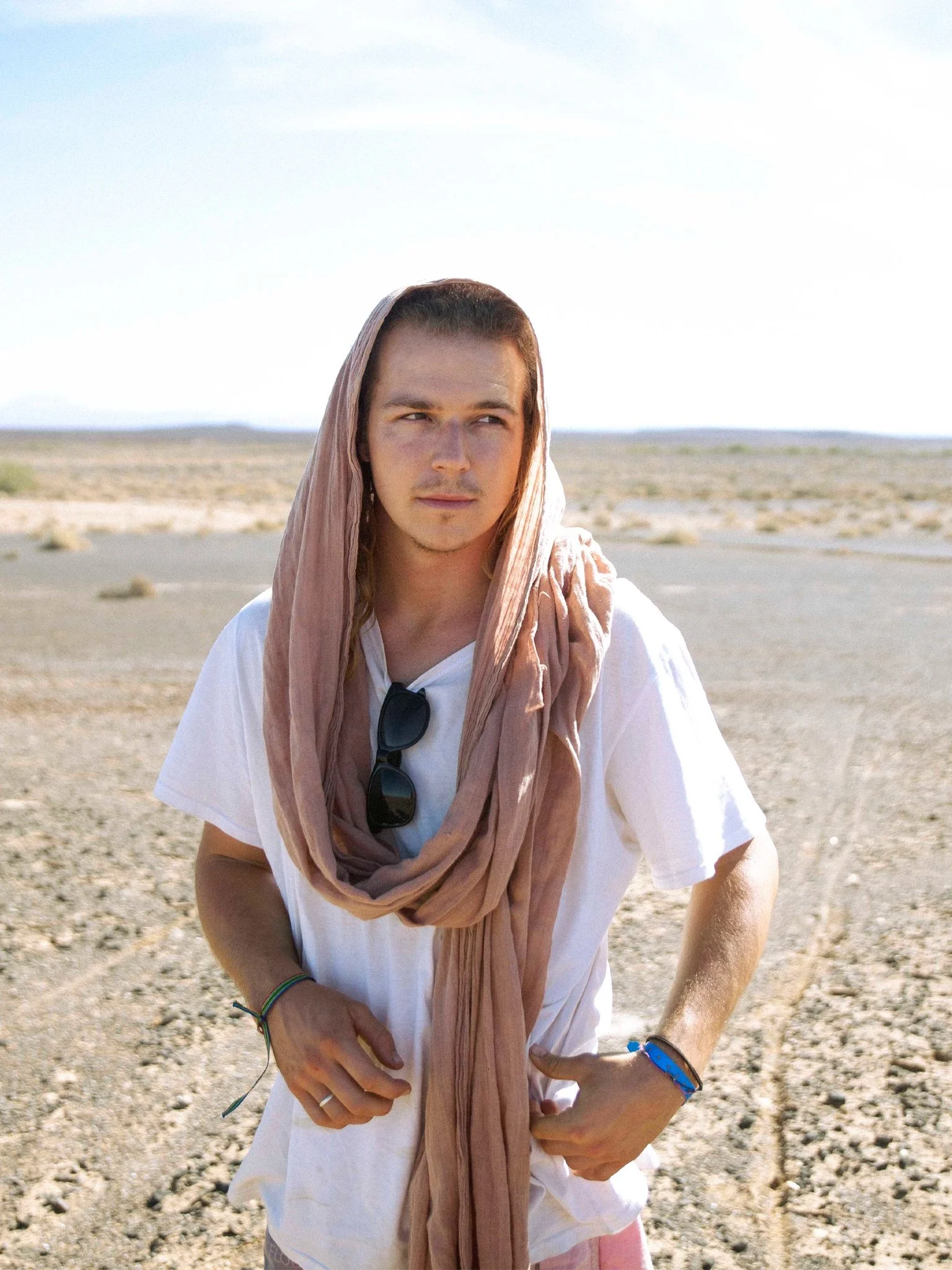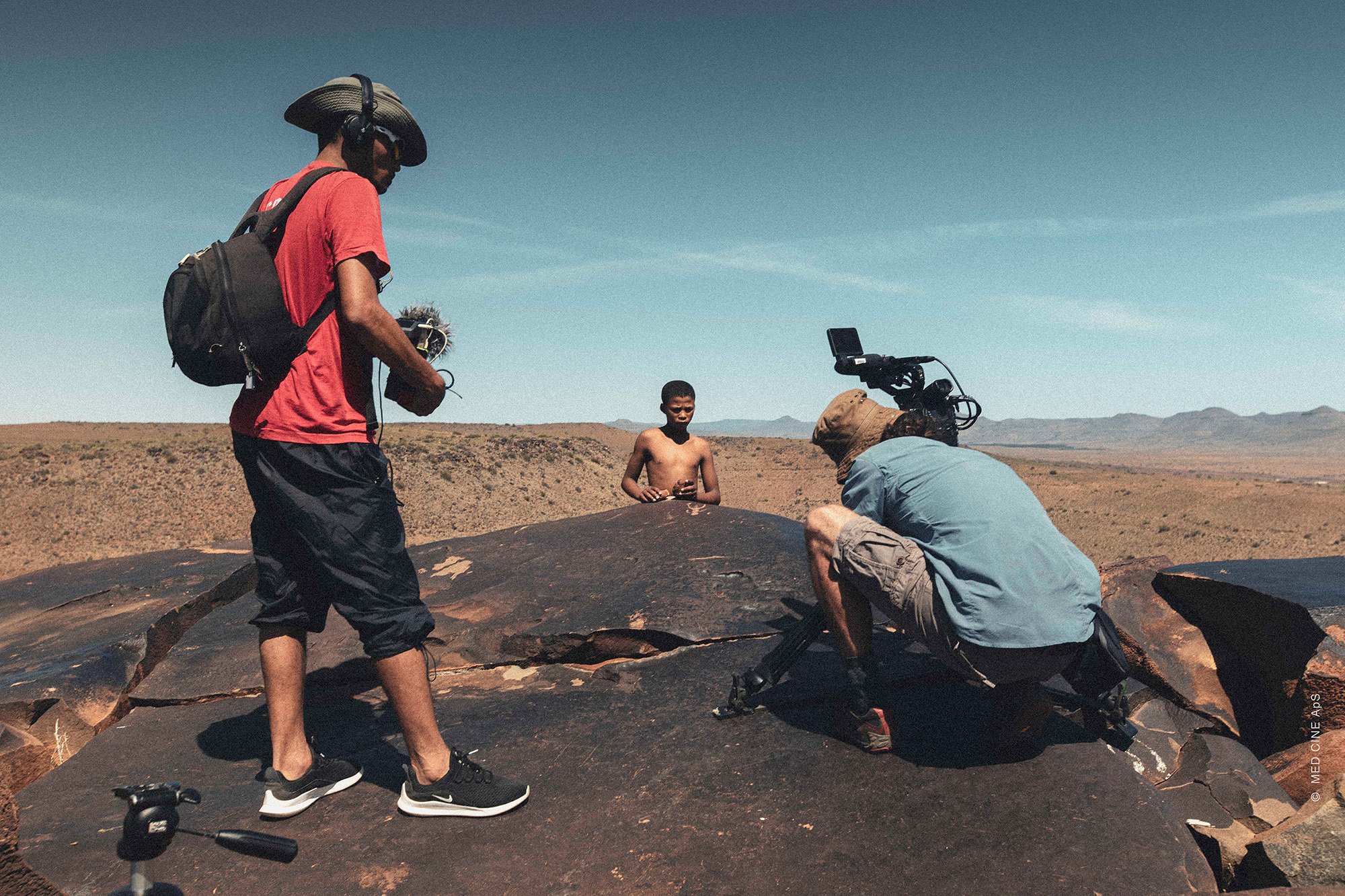Dane Dodds (ZA)
Dane Dodds’ debut film !AITSA (2023, 89 min), which premiered at the documentary festival CPH:DOX in March 2023, is screened daily at Tårup Dark Sky. Bringing together ancient spiritual knowledge and cutting-edge science !AITSA is a transcendental film about humans in the Great Karoo seeking meaning in the infinite darkness surrounding us all.
Dodds is a self-taught multidisciplinary artist and filmmaker. He was born and raised on a farm in the Karoo desert of South Africa. Currently living between South Africa and Nyborg, Denmark, his work focuses on healing and exploration – particularly on the post-colonial effect by his ancestors.
More about the film !AITSA
A highway cuts through the Great Karoo desert of South Africa, linking its two biggest cities, Cape Town and Johannesburg. It’s a dry and thorny region, roughly the size of Germany, which most people see no reason to explore.
If they do find themselves on the highway, all they see on the horizon are countless flat-topped mountains, rising like islands above a waterless ocean. The Great Karoo, to most, is not that great: it is empty.
!AITSA rejects the idea of emptiness and instead reveals the Great Karoo as an ancient site for humans exploring the darkness that is all around us. This is the place where some of the first humans likely lived, near the southernmost part of Africa. Here, in the Blombos cave, an unearthed piece of engraved ochre represents perhaps the earliest ever example of abstract human thinking.
This explorative thinking continues here today. At the other extreme of the Karoo, bordering the Kalahari in the North, the small town of Carnarvon is home to one of the biggest science projects in the world, the so-called Square Kilometer Array. Still under construction, the SKA will consist of hundreds of massive satellites dishes the size of three-story buildings, rising over the pale, reddish dust. Its stated objectives are to explore dark matter, dark energy, the beginning of the universe and the search for extraterrestrial intelligence.
The film details how the wounds of the recent colonial past remain etched into the land. Like history, the film does not have a linear progression. A lot depends on perspective, !AITSA claims, switching between the ultra-near and the galactic to explore the vastness of what it means to be human.
Central to the film is the exploration of existential questions of huge proportions, such as the essence of time. In this search, the voices heard range from unemployed youth to world-class scientists, professors, and archeologists, to local clergy and the spiritual leaders of Bushman-communities. !AITSA gives space for all of them to speak.
Bringing together ancient spiritual knowledge and cutting-edge science, !AITSA is a transcendental film about humans in the Great Karoo desert of South Africa seeking meaning in the infinite darkness surrounding us all.




